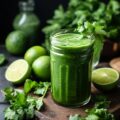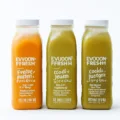Introduction to HPP
High-Pressure Processing (HPP) is a method used by many juice brands to extend shelf life and ensure food safety. But what exactly is HPP, and how does it affect your favorite juice? In this article, we’ll explore the science behind HPP, its benefits, and its impact on the quality of juice you consume.
What is High-Pressure Processing (HPP)?
High-Pressure Processing is a cold pasteurization technique that uses high pressure instead of heat to kill harmful bacteria and pathogens. The juice is sealed in a container and subjected to extreme pressure, usually around 87,000 psi. This process effectively inactivates microorganisms that can cause spoilage and foodborne illnesses.
Benefits of HPP in Juice Production
Extended Shelf Life
One of the primary benefits of HPP is the extended shelf life of juice products. By eliminating harmful bacteria, juices can stay fresh for a longer period without the need for preservatives or additives.
Maintains Nutritional Value
Unlike traditional pasteurization, which uses heat and can degrade vitamins and minerals, HPP preserves the nutritional content of the juice. This means you get to enjoy a product that is closer to its natural state.
Superior Taste and Quality
HPP retains the fresh taste and vibrant color of the juice, offering a superior quality product. The absence of heat ensures that the original flavors and aromas are preserved.
Impact of HPP on Juice Quality
Consumers often worry that advanced processing techniques might alter the quality of their favorite juices. However, HPP has minimal impact on the taste, texture, and nutritional content of the juice. In fact, many juice brands that use HPP are known for their high-quality, delicious products.
How to Identify HPP Juices
While not all juice brands advertise their use of HPP, there are a few ways to identify them:
- Label Claims: Look for terms like ‘cold-pressed’ or ‘HPP’ on the label.
- Extended Shelf Life: HPP juices typically have a longer shelf life compared to fresh juices.
- Brand Transparency: Many brands that use HPP are proud of their processing methods and will often share this information on their website or packaging.
Popular Juice Brands Using HPP
Several well-known juice brands use HPP to ensure the safety and quality of their products. Brands such as Suja, Evolution Fresh, and Pressed Juicery are just a few examples of companies that utilize this innovative technology.
FAQ
1. Is HPP Safe for Juice?
Yes, HPP is a safe and effective method for preserving juice. It inactivates harmful bacteria without the use of heat, ensuring the juice remains fresh and nutritious.
2. Does HPP Affect the Taste of Juice?
No, HPP does not significantly affect the taste of juice. In fact, it helps preserve the natural flavors and aromas, offering a product that tastes fresh and delicious.
3. How Long Do HPP Juices Last?
HPP juices typically have a shelf life of up to 45-60 days, depending on the brand and storage conditions. This is significantly longer than fresh, untreated juices.
4. Are HPP Juices More Expensive?
HPP juices can be slightly more expensive than traditional juices due to the advanced technology and equipment required for the process. However, many consumers find the benefits worth the extra cost.
5. Can I Make HPP Juice at Home?
No, HPP requires specialized equipment that is not suitable for home use. However, you can still enjoy fresh, homemade juice by using a cold-press juicer and consuming it immediately.
Conclusion
High-Pressure Processing is a revolutionary method that has transformed the juice industry. By extending shelf life, maintaining nutritional value, and preserving taste, HPP offers numerous benefits for both consumers and manufacturers. Next time you’re shopping for juice, keep an eye out for brands that use HPP and enjoy the freshest, highest-quality juice available.









